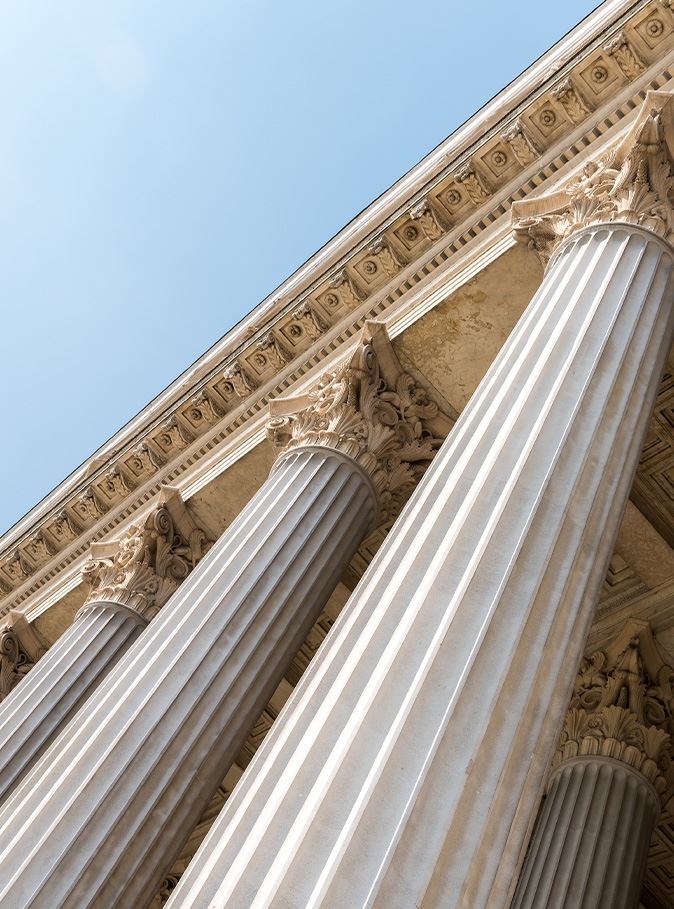
Residential and Commercial Leasing Attorney in Indiana and Illinois
Lease agreements are the backbone of any tenancy, be it residential or commercial. They lay out the terms and conditions that tenants and landlords must abide by during the lease period. While these agreements should be fair and reasonable for both parties, a tenant or landlord may dispute over the terms or conditions of the lease and how they are implemented or executed.
Airdo Werwas, LLC handles all types of legal matters related to real estate, including lease creation, review, and negotiation and when a lease dispute arises, we can help you navigate the applicable laws and ordinances that come into play along with your lease agreement.
Contact Airdo Werwas, LLC at (312) 506-4450 to schedule a free consultation and to learn more about how our legal services will benefit you.
Residential Lease Disputes
Residential lease disputes are typically between landlords and tenants. They can arise due to several reasons, such as unpaid rent, property damage, lease violations, and eviction proceedings. Residential lease disputes are usually brought before small claims court, where judges have the authority to make judgments up to a certain amount. If the case involves a significant amount of money or complex legal issues, it may be brought before a higher court. Here are some of the most common residential lease disputes:
- Unpaid Rent. When a tenant fails to pay rent, landlords can take legal action against them. This could involve either (1) sending a notice to pay; or (2) filing for an eviction. Tenants, on the other hand, may dispute unpaid rent if they believe the landlord has breached their lease agreement.
- Property Damage. Tenants are expected to take care of the property they are renting. If they cause damage to the property, landlords can withhold their security deposit in some instances or file for damages. Tenants, on the other hand, may dispute property damage charges if they believe they are not responsible for the damage.
- Lease Violations. Lease violations can include anything from noise complaints to pet policies. Landlords can take legal action against tenants who breach the lease agreement. Tenants, on the other hand, may dispute lease violations if they believe the landlord has violated their rights or failed to maintain the property as per the lease agreement.
- Eviction Proceedings. Eviction proceedings can be initiated when tenants fail to pay rent or breach their lease agreement. Tenants have the right to dispute eviction proceedings if they believe the landlord has not followed the proper legal procedures.
- Early Termination of Lease. If a tenant wants to terminate their lease agreement before the end of the lease term, they must provide the landlord with a notice of their intention to vacate the premises. The landlord may be entitled to a penalty fee, which is usually specified in the lease agreement.
- Unauthorized Pet or Tenant. Some tenants may try to sneak in an unauthorized pet or allow an unauthorized person to live on the property. If this happens, the landlord has the right to take legal action against the tenant.
Commercial Lease Disputes
Commercial lease disputes occur between businesses and landlords. They can arise due to several reasons, such as rent increases, property maintenance, lease renewals, and subleasing agreements. Commercial lease disputes are usually brought before a higher court due to the complexity of the issues involved. Here are some of the most common commercial lease disputes:
- Non-payment of Rent. This is also a common lease dispute in commercial properties. If a tenant fails to pay rent, the landlord may take legal action against them. However, before taking any legal action, the landlord must give the tenant a notice to pay rent or vacate the premises.
- Rent Increases. Landlords may raise the rent on commercial properties, which can cause disputes between tenants and landlords. Tenants may dispute rent increases if they believe that they are not reasonable or violate their lease agreement.
- Property Maintenance. Landlords are responsible for maintaining commercial properties. If they fail to do so, tenants may file for damages or terminate their lease agreement. Landlords, on the other hand, may dispute property maintenance charges if they believe that the tenant is responsible for the damage.
- Commercial Lease Renewals. When a commercial lease is up for renewal, landlords and tenants may dispute the terms and conditions of the new agreement. Tenants may dispute lease renewals if they believe that the landlord is not offering fair terms or if they have a better offer elsewhere.
- Violation of Lease Agreement. Commercial leases are more complex than residential leases, and there are more terms and conditions to follow. If a tenant violates any of the terms, such as subleasing the property without permission or using the property for unauthorized purposes, the landlord may take legal action against the tenant.
- Insurance Disputes. Commercial leases often require tenants to maintain insurance coverage. If there is a dispute over insurance coverage, the landlord and tenant may end up in a legal battle. It is important for both parties to review the insurance requirements in the lease agreement carefully.
- Security Deposit. Commercial leases typically require tenants to provide a security deposit. If the tenant causes damage to the property or breaches the lease agreement, the landlord may use the security deposit to cover the cost of repairs or other expenses. The tenant may dispute the amount deducted from the security deposit.
- Subleasing. Many times a business needs to downsize, and so they look to subleasing as an option. Under a sublease, however, the tenant still has obligations and the lessor must agree to the sublease. Assignment of the lease might be an option, but that, too, can be a matter of dispute.
Resolving Residential and Commercial Lease Disputes
Residential and commercial leasing disputes can often be resolved early with the help of Airdo Werwas, LLC. We can engage with the landlord or tenant and can do the negotiations with them for you to move your dispute to settlement. If settlement negotiations with the landlord or tenant breakdown we are able to initiate a lawsuit in order to continue to work towards a resolution. Litigation is one means to address leasing disputes in Indiana and Illinois. This involves filing a complaint with the appropriate court. Other methods include alternative dispute resolution, like mediation or arbitration. A lease agreement may indicate whether arbitration is mandatory or not.
Common Remedies for Lease Disputes
Whether it is a residential lease or a commercial lease, many remedies are available. A specific remedy will depend on the facts and circumstances of each case and state and local laws.
Remedies for Landlords
- Termination. The lessor can terminate the tenant's possessory interest in the leased premises upon a tenant's default, but this also terminates the tenant's obligation to pay, so it is often a last option. With a properly drafted survival clause in the lease, the tenant's rent obligation can be converted to pay damages.
- Eviction. A landlord can evict a tenant for breach of the lease contract, which may relinquish the tenant from paying rent. The landlord can sue for damages for the monetary losses resulting from failure to re-lease or to lease at the same rate up until the original termination of the lease.
- Lawsuit for Rent and Damages. A landlord can opt not to evict but sue directly for unpaid rent and other damages.
- Landlord's Lien on a Tenant's Property. In some cases, a landlord could seek a lien against the tenant's property as stipulated in the lease or allowed by statute. A lien is different than a landlord performing self-help where they go in and take property without lawful authority only obtained through judicial proceedings. A lien is often available when a landlord includes the right to a security interest in the tenant's personal property.
- Security Deposit. The landlord may use the tenant's security deposit to remedy any damages to the property. Security deposits are permitted for most types of leases, including those related to industrial, off ice, or residential leases.
Remedies for Tenants
- Constructive Eviction. Constructive eviction is a defense for nonpayment of rent or a justification for termination of the lease. When a landlord substantially interferes with a tenant's use or enjoyment of the leased premises, the tenant may be forced to quit the property.
- Lawsuits for Damages. A tenant can sue a landlord to recover damages when the landlord defaults.
- Reformation. Under reformation, a court permits the parties to rewrite a piece of the contract so that it more adequately or accurately reflects the parties' original intentions.
- Rescission. Rescission can be unilateral or mutual. Under rescission, the tenant cancels the lease because the landlord committed a material breach. If mutual, both the tenant and landlord agree to release all remaining obligations.


Our Clients Come First
-
“I very much appreciate the knowledge and support I have received.”
Contact Airdo Werwas, LLC Today
Leasing property is a common practice in the real estate industry. Both residential and commercial properties are leased out to tenants for many reasons. Likewise, lease disputes can arise between landlords and tenants for many reasons. Having a lawyer by your side in Indiana and Illinois can help prevent or appropriately address these types of disputes.
Contact Airdo Werwas, LLC today either by filling out the online form or calling us at (312) 506-4450 to schedule a free consultation.
See How We Can Help Get in Touch Today

-
Seasoned Litigators with nearly 160 Years of Combined Experience
-
Fierce Advocates in the Boardroom and the Courthouse
-
Committed to Our Clients & Their Interests
-
Exemplary Legal Advocacy in a Wide Range of Civil Matters


